Careers in science, technology, and engineering (STE) offer opportunities to use scientific inquiry, research, data analysis, critical thinking, and programming to solve complex real-world problems and drive innovation.
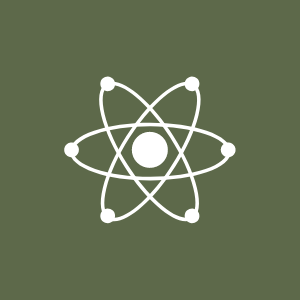
Meet Your Career Coach
Our specialized Science, Technology, and Engineering career coach will help you launch a job, internship, or graduate school search in your field of interest.

Explore Industries
Learn about specific fields within Science, Technology, and Engineering
The fields of biotechnology and pharmaceuticals both involve making products to enhance the human condition. Biotechnology focuses on creating products from living organisms while pharmaceuticals focuses on creating products using artificial sources, including chemicals. These industries are predicted to continue to grow in today’s markets.
Types of Positions
- Scientific Research Assistant
- Research Associate
- Clinical Research Coordinator
- Laboratory Technician
- Process Development Associate
- Quality Control Analyst
Where BC Graduates Have Gone
- Biogen
- Merck
- Moderna Therapeutics
- Novartis
- Pfizer
- Sanofi Genzyme
- Takeda
- Vertex Pharmaceuticals
Hiring Timelines
Hiring timelines are based on aggregate outcome data from the Class of 2022 and reference full-time job offers.
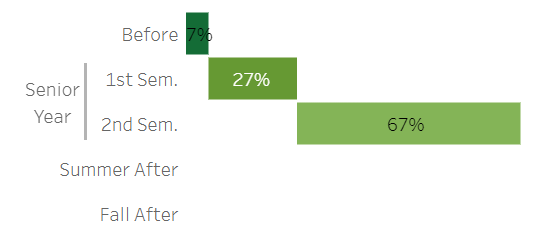
Online Resources
A collection of job boards, online communities, and industry news.
- Vault Guide to Pharmaceuticals and Biotechnology, Third Edition
- Massachusetts Biotechnology Council
- Massachusetts Life Sciences Center
- BioSpace
- FierceBiotech
Professional Associations
Learn about the industry and grow your professional network.
Do I need to go to graduate school?
A graduate degree is not required for most entry-level positions, however people in the industry do obtain graduate degrees as they advance in the field.
Data science is a multidisciplinary field that uses scientific methods, processes, algorithms and systems to extract knowledge and insights from structured and unstructured data. Similar to data mining and “big data”, data science is crucial to modern day marketing, with the growth of e-commerce and social media being able to target consumers directly through it. Data science will be crucial for the next wave of marketing and consumer analysis.
Data analytics is the process of examining data sets in order to draw conclusions about the information they contain, increasingly with the aid of specialized systems and software. Data analytics technologies and techniques expand across a multitude of industries (consumer products, healthcare, manufacturing), and enable organizations to make more informed business decisions.
A data analyst is similar to a data scientist, but are often not responsible for creating the algorithms used for data discovery and acquisition. Rather than creating their own data projects, data analysts often find themselves tackling specific business tasks using existing tools, systems, and data sets. Both careers share a common goal: to discover how to use information to answer questions and solve problems for the benefit of their business/industry.
Types of Positions
- Data Analyst/Scientist
- Clinical Data Manager
- Product Analyst
- Data Infrastructure
- Data Engineering
- Data Quality and Data Governance
- Data Analytics Engineering
- Data Product Manager
Online Resources
A collection of job boards, online communities, and industry news.
Professional Associations
Learn about the industry and grow your professional network.
Technical Interviews
Technical interviews require candidates to demonstrate a particular skill set or knowledge that relates to the job, such as writing code for a computer programming position. They are commonly used for positions in science, technology, or engineering. You may be asked to solve puzzles or problems, complete a coding challenge, or answer specific targeted questions. Resources on our interviewing page will help you prepare.
Do I need to go to graduate school?
While there are some entry-level data scientist positions available, you’ll typically need a minimum of a master’s degree in data analytics, data science, computer science, mathematics, or statistics, although some people have degrees in engineering, economics, econometrics, business, operations research, neuroscience, or computational psychology. Some employers require applicants to have a doctorate in one of the aforementioned fields.
Best 23 Schools with Data Science Master's Programs
A graduate degree is not required for most entry-level data analyst positions, however people in the industry do obtain graduate degrees as they advance in the field.
The field of engineering primarily deals with the design, manufacture, and operation of structures, machines, or devices. The engineering industry is comprised of sectors like civil, industrial, mechanical, electrical, chemical, and more. The engineering industry has an enormous potential of creating new jobs within the industry with categories primarily based on designing, manufacturing, installing, repairing, packaging, or selling engineering products.
Types of Positions
- Mechanical Engineer
- Civil Engineer
- Electrical Engineer
- Chemical Engineer
- Industrial Engineer
- Environmental Engineer
- Biomedical Engineer
Hiring Timelines
Hiring timelines are based on aggregate outcome data from the Class of 2022 and reference full-time job offers.
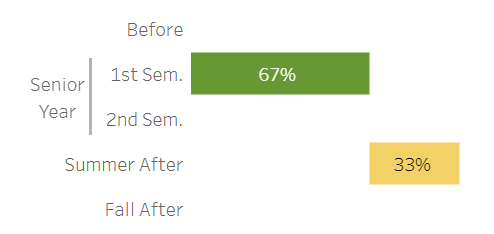
Online Resources
A collection of job boards, online communities, and industry news.
Campus Resources
Professional Associations
Learn about the industry and grow your professional network.
Do I need to go to graduate school?
In order to work as an engineer, one must obtain an engineering degree within a specialized area of engineering. BC students interested in pursuing an engineering career should first determine what type of engineering is the best fit and then research the programs for that engineering discipline.
Graduate Program Resources:
The environment and sustainability industry focuses on creating sustainable technology and industrial processes in a way that minimizes negative consequences to the environment. This field is closely related to clean energy and carbon emission reduction. There are a variety of functional roles within this industry from marketing and sales to environmental science and engineering. The field is projected to grow as the demand for environmentally friendly products and services increases.
Types of Positions
General Areas:
- Waste Management
- Water/Air Quality Management
- Environmental Planning and Regulation
- Conservation
- Fishery/Wildlife Management
- Parks/Outdoor Recreation
Job Titles:
- Botanist
- Ecologist
- Energy Consultant
- Geologist
- Park Ranger
- Geographic Information Systems (GIS) Analyst
Where BC Graduates Have Gone
- AECOM
- Commonwealth of Massachusetts
- EBI Consulting
- Northstar Recycling
- EnerNOC
- Triumvirate Environmental
- VHB
Hiring Timelines
Hiring timelines are based on aggregate outcome data from the Class of 2022 and reference full-time job offers.
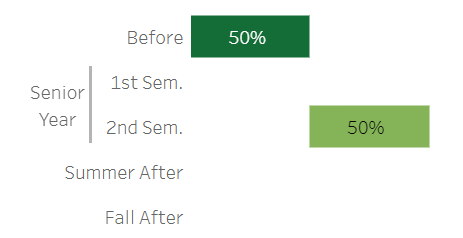
Online Resources
A collection of job boards, online communities, and industry news.
- Massachusetts Clean Energy Center
- Environmental Business Council of New England
- Ecological Society of America
- National Oceanic and Atmospheric Administration
- U.S. Environmental Protection Agency
- National Park Service
- U.S. Geological Survey
- EnvironmentalScience.org
- Energy Central Jobs
Campus Resources
- EcoPledge
- Environmental Studies Program
- Earth and Environmental Sciences Department
- Boston College Office of Sustainability
Professional Associations
Learn about the industry and grow your professional network.
Do I need to go to graduate school?
Because environmental services/sustainability incorporates many different types of functional areas, there are a range of types of graduate programs one can consider. An important first step is to determine what your interest area within this career area is—are you focused on climate science? Sustainability? Environmental policy? Environmental law? The graduate program you select should be focused accordingly. Always be sure to research schools of interest to make sure your interests align with the strengths and focus of the program. In some cases and depending on your goals, you may not need a graduate degree to get into the field or you may be able to complete a certificate program.
Graduate Program Resources:
Product development typically refers to all stages involved in bringing a product from concept or idea through market release and beyond. It is a process involving many teams across a company, including product management, product marketing, UX/UI design, engineering, and more.
Types of Positions
- Product Manager
- UX/UI Designer
- Product Developer
- Product Marketer
- Product Designer
- Product Engineer
- Marketing Manager
- Product Owner
Where BC Graduates Have Gone
- athenahealth
- Meta
- Publicis Sapient
- Converse
- DocuSign
- Twilio
Online Resources
A collection of job boards, online communities, and industry news.
- Product HQ
- ProductPlan
- LinkedIn Learning - Explore a Career in Product Management
- Project Management Institute
- Mind the Product
- Women in Product
Campus Resources
Professional Associations
Learn about the industry and grow your professional network.
Do I need to go to graduate school?
A graduate degree is not required for most entry-level positions, however people in the industry do obtain graduate degrees as they advance in the field.
Academia is concerned with the pursuit of research, education, and scholarship. Conducting research either independently or for an organization or becoming a professor at an institution is typically the route taken for most pursuing academia.
Online Resources
A collection of job boards, online communities, and industry news.
- National Science Foundation Research Experiences for Undergraduates
- U.S. Department of Energy Science Undergraduate Laboratory Internships
Campus Resources
- Undergraduate Research Opportunities
- Biology Department
- Chemistry Department
- Physics Department
- Psychology and Neuroscience Department
Do I need to go to graduate school?
While it is possible to get an entry-level job in research without a graduate degree, a graduate degree is key to career advancement. Your graduate degree will be in the field in which you want to focus your teaching and/or research.
Both software development and information technology closely revolve around the development, maintenance, and study of new telecommunications and software. The industry includes software services such as training and documentation as well as consultation and data recovery. With the ever-increasing reach of the internet, the industry is expected to grow exponentially, especially around cloud-based systems.
Types of Positions
- Software Developer
- Software Engineer
- Software Architect
- Quality Assurance Engineer
Where BC Graduates Have Gone
- Amazon
- Dell
- DraftKings
- Optum
- Oracle
Hiring Timelines
Hiring timelines are based on aggregate outcome data from the Class of 2022 and reference full-time job offers.
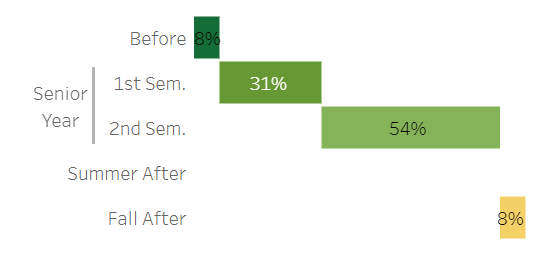
Online Resources
A collection of job boards, online communities, and industry news.
- Mass Technology Leadership Council
- Wellfound
- VentureFizz
- Dice
- Stack Overflow
- TechCrunch
- CrunchBoard
- LeetCode
- HackerRank
Campus Resources
Professional Associations
Learn about the industry and grow your professional network.
Technical Interviews
Technical interviews require candidates to demonstrate a particular skill set or knowledge that relates to the job, such as writing code for a computer programming position. They are commonly used for positions in science, technology, or engineering. You may be asked to solve puzzles or problems, complete a coding challenge, or answer specific targeted questions. Resources on our interviewing page will help you prepare.
Do I need to go to graduate school?
A graduate degree is not required for most entry-level positions, however people in the industry do obtain graduate degrees as they advance in the field.
Key Resources
Handshake
As you look for opportunities, start with Handshake, our centralized platform where employers post positions for Boston College students. All of the top employers are hiring on Handshake. You can also find campus recruitment opportunities.
Featured STE Employers
Follow these employers and others you like on Handshake to receive email alerts when new jobs and events are posted. Following employers also helps improve your job recommendations.
Eagle Exchange
Eagle Exchange is an interactive virtual platform that fosters connections between students and Boston College alumni. You can use Eagle Exchange to build your professional network, ask career-related questions, find alumni mentors, apply to projects to build skills, and more.
Featured STE Alumni
Big Interview
Build confidence in your interview skills through free access to Big Interview. You can record yourself answering questions that are tailored to specific industries.
STE Question Library
Start practicing mock interviews in hundreds of industries and job titles. Below are a few featured question sets – browse these and more in Big Interview.
Forage
A formal internship is not the only way to gain professional experience. Projects are a great option to boost your résumé/portfolio, build skills, and grow your professional network. The Forage platform offers hypothetical projects from top employers that you can complete to learn more about working in a specific field.
STE Virtual Work Experiences
Check out these bite-sized 5-6 hour virtual work experience programs that give you a genuine career advantage with Fortune 500 companies.
STE LinkedIn Learning Content
LinkedIn Learning provides free access to thousands of on-demand courses giving you an opportunity for self-paced learning about topics of interest from industry experts. This is also a great way to develop the skills all employers seek in their entry-level candidates.
Vault
Find out what it is like to work within an industry, a company, or a profession. View the career guides for up to date information on a variety of careers as well as interviewing strategies and job search tips.
To access: Register for an account using your Boston College email address.
STE Career Guides
These career guides provide essential information about key STE careers and industries, including industry trends, employment and earnings statistics, and what employers look for in job candidates.
Industry-Specific Content
Your STE coach has curated this set of custom tools, data, and resources to assist you in your career exploration and preparation.
Browse our jobs and internships pages to prepare to apply to STE positions.
Update your career interests in Handshake to receive regular updates from our coaches with exclusive resources, reminders, event invites, job/internship postings, and more.
Use the database to find students who completed internships that you may be interested in and reach out to them to discuss their summer experience.
Explore where Eagles land after they graduate from Boston College. Filter first destinations data by school, major, industry, location, and more.
Check out a list of Diversity and Leadership opportunities specific to Consulting, Business, and Finance.
Upcoming Events








